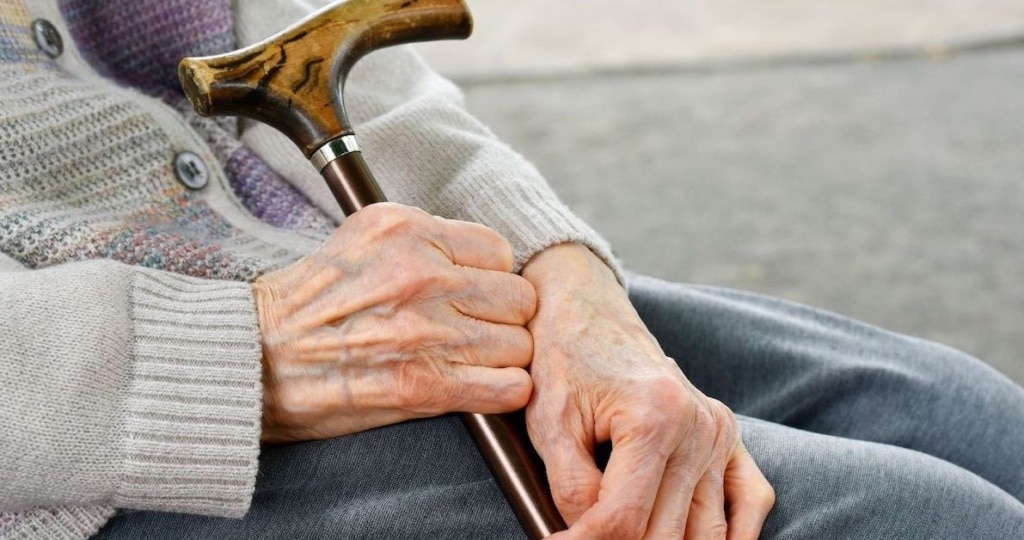Nearly a year into COVID-19, with access to vaccines starting to reach rural areas, families who have kept a cautious distance are eager to get back to normal. But even people who have delivered groceries and set up weekly pill boxes for aging relatives all this time may find some surprises once they get past the kitchen or living room into other parts of the house.
It doesn’t take a pandemic for families to miss signs that aging parents are not managing as well as they would have us believe. Sometimes the natural mood lift that comes with our visits makes it seem like there’s no need for concern. Some elders are brilliant at masking deteriorating conditions in themselves or a spouse to keep others out of their business. Or they just don’t want to be a bother, especially when their kids have plenty of other worries. Even without a pandemic, it may take a crisis (or two or three) for families to recognize and accept that their elders are not fine.

Whether you live down the road or across the country, here are some warning signs that aging family members or neighbors might need more help.
Odors
A diminished sense of smell is common in elders, whether or not they have had COVID-19. So they may be surprised and even embarrassed by your concern about odors in their home or about their person. Nevertheless, finding the source of an odor can help you identify things worth a frank discussion. Strong urine odors may be a sign of incontinence, which if not managed can lead to other problems.
Body odor may indicate fear of falling in the shower or even an acute illness like a urinary tract infection. Bad breath may suggest a trip to the dentist is overdue. Pet odors can indicate difficulty in managing care of canine or feline companions. General mustiness can come when someone stops letting in fresh air because they’re cold due to poor circulation. Even a strong odor of air “freshener” can be cause for further investigation, which might reveal an accumulation of garbage which in turn can attract rodents which add to the smell. A mildewy dish sponge is easily remedied, but black mold odor requires more significant intervention.
Piles
Key concerns to focus on here are finances and falls, especially when letting things pile up is a family trait amplified by aging. A stack of unopened bills may be a sign of depression or that a loved one is so overwhelmed by other activities of daily living (ADLs) they don’t have the time or energy for anything more. A bag of books to return to a lender “one of these days” becomes practically invisible after a while, yet the trip hazard is very real. It might help to work from a tool like this home falls prevention checklist.
With luck, a parent can give you an opening to start these awkward conversations. For example, my dad once asked me to write out some checks because it was hard for him to do with the hand injured by a table saw. That’s when we realized he hadn’t been paying his credit card bill because he was reading the “balance” figure as his card reward points, not what he owed. That led us to setting up automatic payments for most of his bills. His bum hand still betrayed my dad almost every time he tried to fill in the password for an online account, but he accepted that annoyance since his bills weren’t piling up on the counter.
Routines
After months of “safer at home,” our elders’ routines may have changed significantly.Anyone of any age might feel discombobulated when their daily routine is disrupted. But our elders may find it harder than expected to cope. For example, for many elders the morning routine includes the need to be near a toilet when the diuretic kicks in. To cope with an early outing they may avoid drinking the liquids needed to keep systems working. In the short term, that might be okay. But dehydration leads to problems that can multiply to include dizziness, confusion, constipation and more.
To understand how changes in routine might present, it helps to know what our elders’ routines actually are. Try to visit at different times of the day. That will also let you seewhat they look like when they aren’t spruced up for company or an outing. You might be surprised how long toenails get on someone who can’t reach to clip them any more. Also note what’s no longer routine. When a family member no longer checks the mailbox regularly, it might be time to ask your postmaster what it takes to get mail delivered right to the door. When an early riser starts sleeping late it might be time to ask how often they are up in the night and why. A coping mechanism for spouses dealing with nighttime incontinence in a partner is to wake them at regular intervals to go to the toilet. The alternative is waking to change the sheets. Either way, the sleep routine is disrupted in an upsetting and all too common way.
Out-of-Place Items
Signs of impaired vision, dexterity and mobility might include finding dropped medications under the table. Signs of diminished strength might include out-of-season items not returned to their usual storage space on a high shelf. Pillows on the seat of a recliner or easy chair might indicate difficulty rising from it, or that the seat springs are sprung. That walker or cane in the corner may have been recommended by a physical therapist — and news to you. And then there are the weird signs that might indicate dementia. My mother was still masking her dementia pretty well when my sister visited and Mom brought out orange soda in place of orange juice at breakfast. Other out-of-place items were clues about how much my dad was compensating for Mom’s deteriorating ability to shop, plan or prepare meals. When partial packages of hot dogs in the fridge outnumber fruits and vegetables in a household where tube steak was seldom seen, it’s time to talk.
Private Places
Private places might include that hard-to-reach spot behind the toilet where you may find evidence of past diarrhea or vomiting. Those are the easy ones. The hard ones feel more like an invasion of privacy. It never occurred to me to go through my parents’ private things until after their third major crisis in a year, and that was with their knowledge and consent: When my sister and I packed for their move to assisted living I found multiple unused medications for a MRSA infection we didn’t know Mom had. And it wasn’t until after my dad died that I found among his papers the number for a police report he made. It turned out to be for a telephone scam: Mom was sending prepaid credit cards to people she didn’t know and Dad called the sheriff. Neither of them ever mentioned it to me. If I had it to do over, I can’t say I would have been comfortable or even able to snoop through their things (Mom’s paranoia was great and her hearing was even better). But I can say, for what it’s worth, that my mom would not have hesitated for a moment to go through mine when I was a teenager if she thought it was necessary. And my mom supported the removal of firearms hidden in her dad’s home when she feared his behavior could pose a threat to others. There are no simple answers here, only questions you can ask to help guide actions you may have to take.
It’s an uneasy balance we strive for. We want to protect the independence of our aging rural elders, but also feel a duty to try to help them avert debilitating falls, impacted bowels, financial scams and more. Pandemic-induced separations have been hard. Sadly, a different kind of hard may be waiting in the wings. It’s good to know what to look for after that good, long hug you’re been waiting for.





